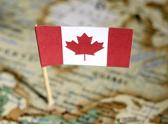Canada
Supreme Court confirms publication bans on bail hearings
 Bail hearings should not be open to the media to report details, the Supreme Court of Canada ruled on Thursday.
Bail hearings should not be open to the media to report details, the Supreme Court of Canada ruled on Thursday.
The court, by an 8-1 margin, concluded that a publication ban limits the Charter of Rights guarantee to free expression, but the limit can be justified in a free and democratic society.
The ban prevents dissemination of evidence which, for the sake of ensuring an expeditious hearing, is untested for relevance or admissibility, wrote Justice Marie Deschamps.
"Accused should be devoting their resources and energy to obtaining their release, not to deciding whether to compromise liberty in order to avoid having evidence aired outside the courtroom."
The country's major media outlets failed in their challenge to a 1976 Criminal Code provision that imposes a news blackout on bail hearings when the Crown or defence wants it.
The media argued it violates Canada's tradition of open courts. Lawyers for accused offenders countered that exposing them early in the game threatens their right to a fair trial.
The Supreme Court on Thursday ruled on two cases.
In one, the Edmonton Journal, the CBC and CTV unsuccessfully challenged a ruling in the Alberta Court of Appeal that concluded that the right to a fair trial trumps the public's right to know.
The case centred around Edmontonian Michael White, whom a judge released on bail in 2005 after he was charged with killing his pregnant wife.
Media lawyers argued that the news blackout on the hearing created widespread suspicion and misinformation.
"The public only knew that Mr. White, who had pleaded for public support in finding his wife, had been charged with her murder and that the judicial system had released him."
In the other case, the Toronto Star and other outlets challenged the closed bail hearings of 17 residents of the Toronto area who were charged with terrorism offences in 2006.
News blackout means media outlets cannot report on why a judge decides to grant or to deny bail, nor can any details of the hearing be publicized.
Media outlets argued in a Supreme Court hearing last fall that publication bans should not be automatic and that judges should have discretion to decide on a case-by-case basis, a practice the media says exists in countries with comparable legal systems.
White's lawyer argued that bail hearings should remain secret, upon request, because they happen in short order -- usually within 24 hours of arrest -- so there is not enough time to serve notice to the media and to mount a defence.
The two appeals drew more than a dozen interveners between them.
(Published by National Post – June 10, 2010)